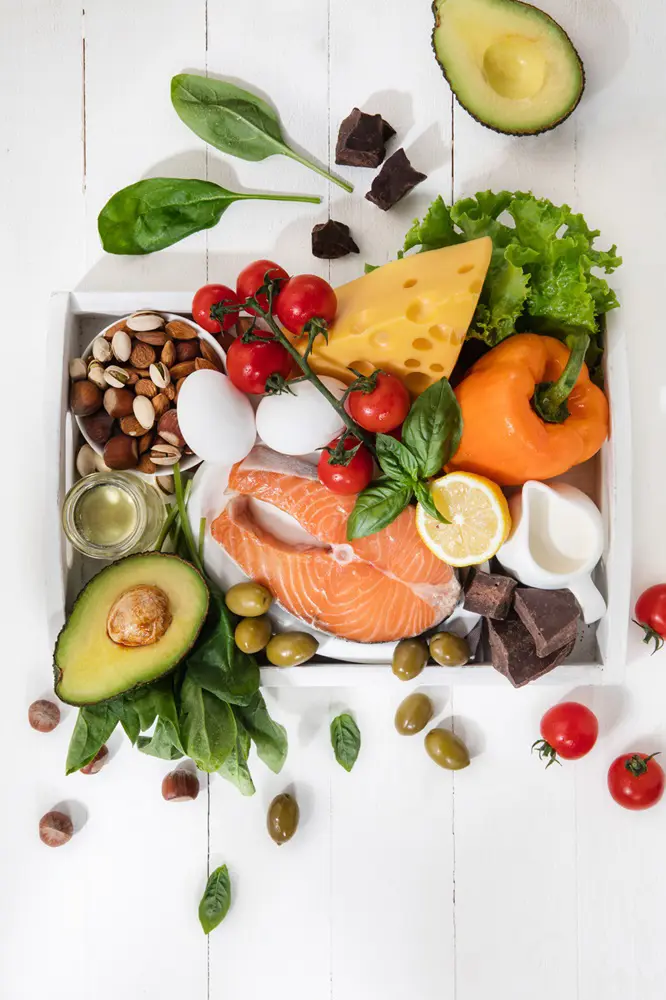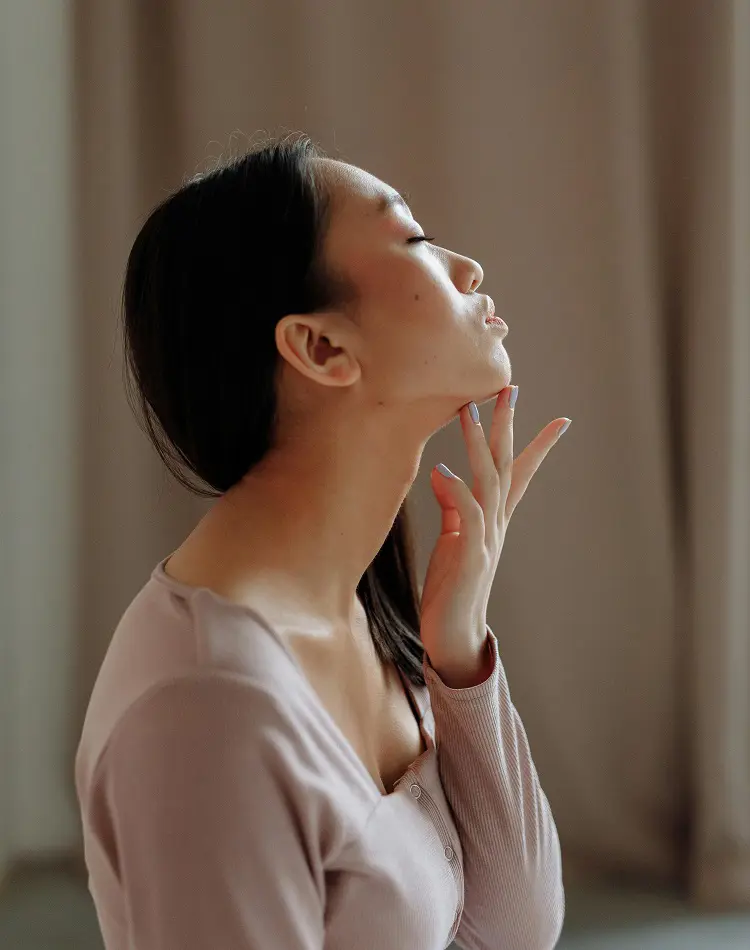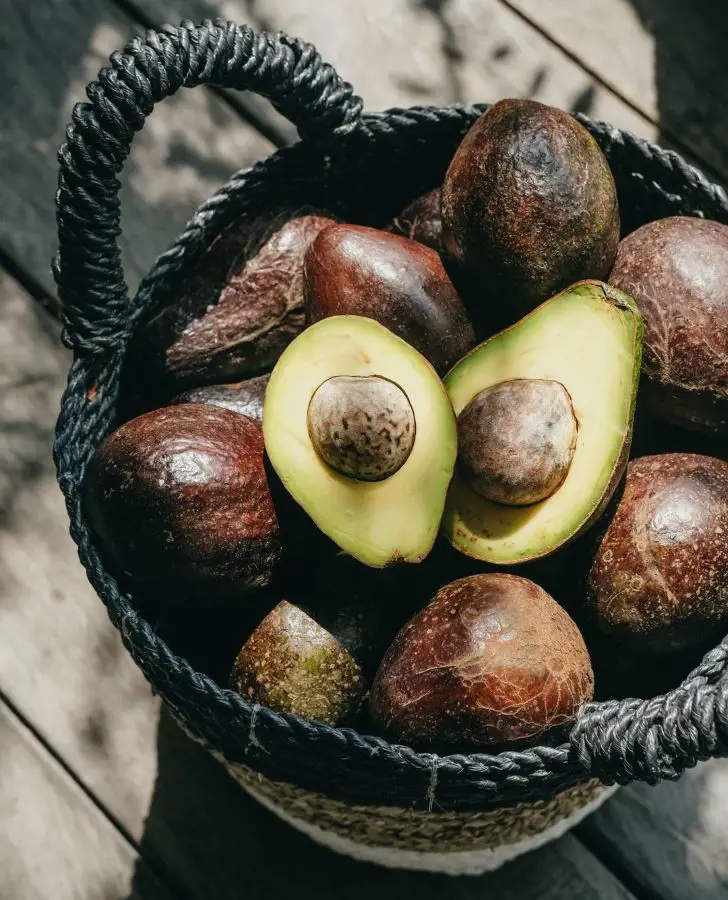Acne And Tea: 15 Natural Remedies For Clearer Skin
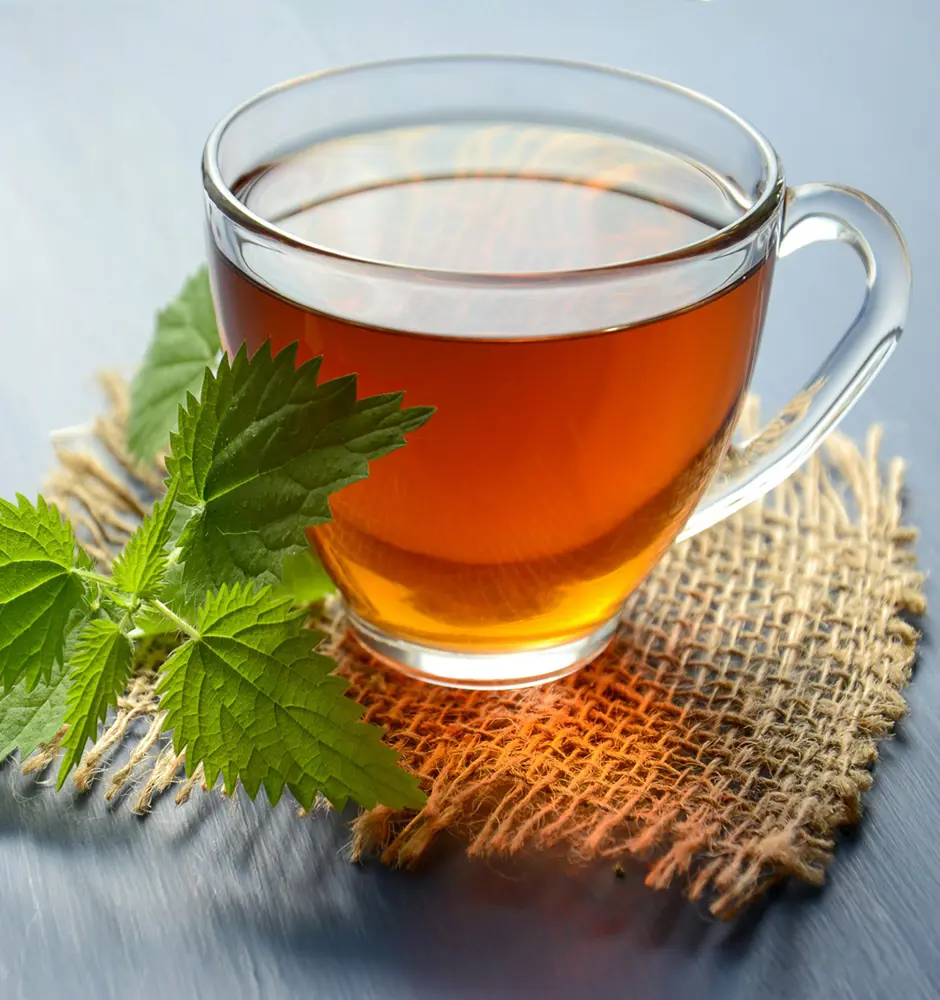
This post may contain affiliate links. If you make a purchase through links on our site, we may earn a commission.
What is Acne?-Acne is an inflammatory disorder of the skin, which involves the sebaceous (oil) glands that connect to the hair follicle. If you want to get rid of this common skin condition and looking for home remedies, drinking tea can be one of the excellent options.
Although these herbal teas may not give dramatic results, they are well tolerated and have fewer side effects than acne medications. Along with drinking teas for acne, you can also use the tea as a topical agent for acne. Here we have brought a list of best teas that can help combat acne.
1. Spearmint Tea
Traditionally spearmint tea is among the best herbal tea for acne owing to its anti-androgenic effect. This is a non-pharmaceutical therapy for hormonal acne and for women with PCOS.
This tea helps in increasing the estrogen hormones in the body which can act as remedies for the excess androgen or testosterone hormones. A study has demonstrated that an intake of 2 cups of spearmint tea helps reduce high testosterone levels in women.
This includes low levels of DHT - the male sex hormone that leads to an overproduction of sebum (oil) in the skin. It has been observed that when sebum is produced in large quantities, it causes blockage in pores, resulting to acne formation. Spearmint tea also causes fewer side effects than other acne medicines.
Special Recommendations
It is highly recommended tea especially for women who experience adult acne which tends to flare up during the menstrual cycle.
2. Green Tea
As referred as the Powerhouse of all teas for acne, green tea has attributes like anti-inflammatory, antimicrobial, and antioxidant.
EGCG, carotenoids, tocopherols, selenium, etc. in green tea are antioxidants that help prevent skin damage due to free radicals and are therefore suitable for reducing acne. Epigallocatechin gallate (EGCG), a catechin compound found in green tea are anti-androgenic which assist in reduction of sebum or oil on the skin.
A 2017 review of other research conducted on green tea found that polyphenol compounds can be beneficial to skin health by not stimulating sebaceous glands' secretion of sebum, the oil.
How To Use
Applying green tea extract externally may assist with a variety of skin conditions, including acne. When green tea was applied topically in a formula with a 2.5% concentration of green tea daily for 60 days, the sebum production rate was reduced to as low as 80% after 8 weeks.
3. Chamomile Tea
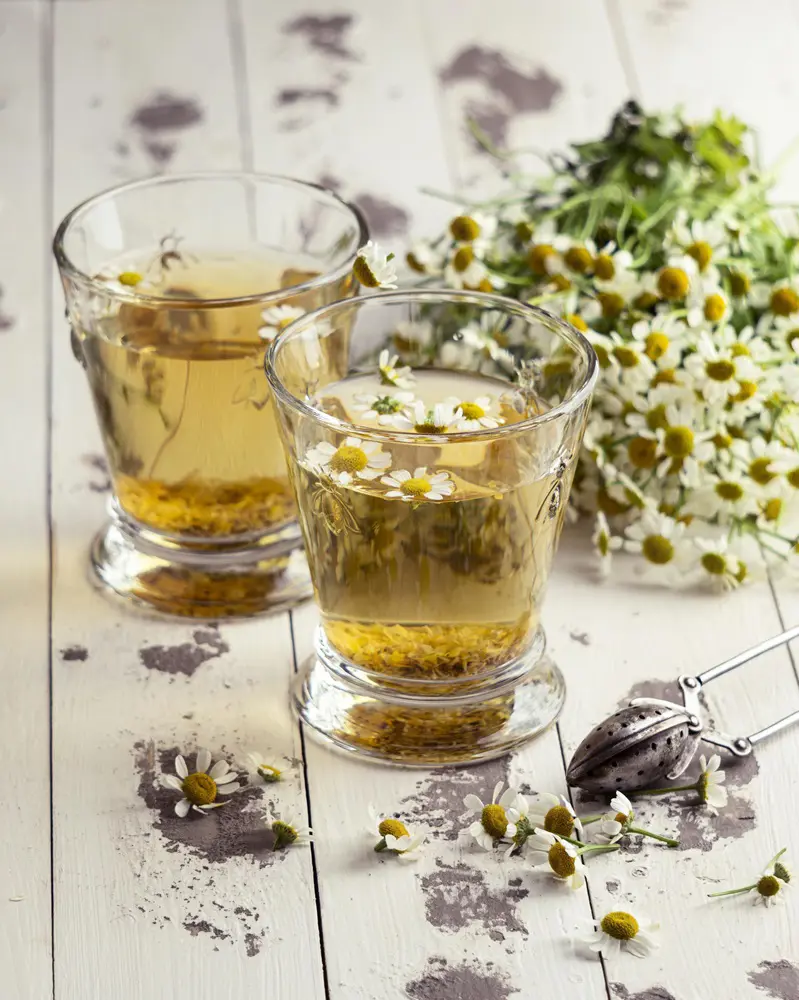
Chamomile tea has anti-inflammatory property which helps in soothing the gut, and this is useful when it comes to healing of acne because inflammation in the body including gut worsens acne.
Chamomile tea, another example of a nervine tea works effectively to create a relaxation process for the human body and mind. If you have lots of stress it is highly useful for you in one way or the other. Stress leads to the production of cortisol which can aggravate acne.
In addition, this tea's sedative action, although not very strong, can assist in the onset of sleep and enhance the quality of the latter. Not getting enough sleep as a person makes you a candidate for more acne breakouts.
How To Use
The extent of acne breakouts that people get can be prevented by drinking the tea or greatly lowered. Also, its topical application may be useful in treating symptoms of acne. And, applying cold chamomile tea bags to the pimples helps diminish the inflammation and the redness that comes with it.
4. Dandelion Tea
Dandelion is a herb that means lion’s tooth, a plant whose uses in treatment date back to historical times. Dandelion tea is known to assist in the removal of toxins, wastes, pollutants, inflammatory by-products and hormones from the bloodstream hence aiding in detoxification.
Most acne sufferers have impaired detoxification processes, and this tea can help support these pathways and elimination of toxins. Also, the bitter taste of the root of dandelion triggers the production of stomach acid, bile, and enzymes that promote efficiency within the digestive tract.
5. Hibiscus Tea
Hibiscus tea possesses numerous skin care qualities, which range from helping your natural levels of collagen and elastin to reducing breakouts to balancing oil production. Hibiscus is rich in antioxidants which aid in neutralizing oxidative stress, one of the drivers of inflammation in the body. Inflammation, one of the driving factors of acne has to be necessarily reduced when healing acne.
Apart from this, hibiscus tea may also help lower insulin and improve insulin resistance. Having high blood sugar and insulin levels also provokes larger amounts of sebum which makes the skin greasy, and then triggers inflammation leading to clogging pores and acne.
6. Rooibos Tea
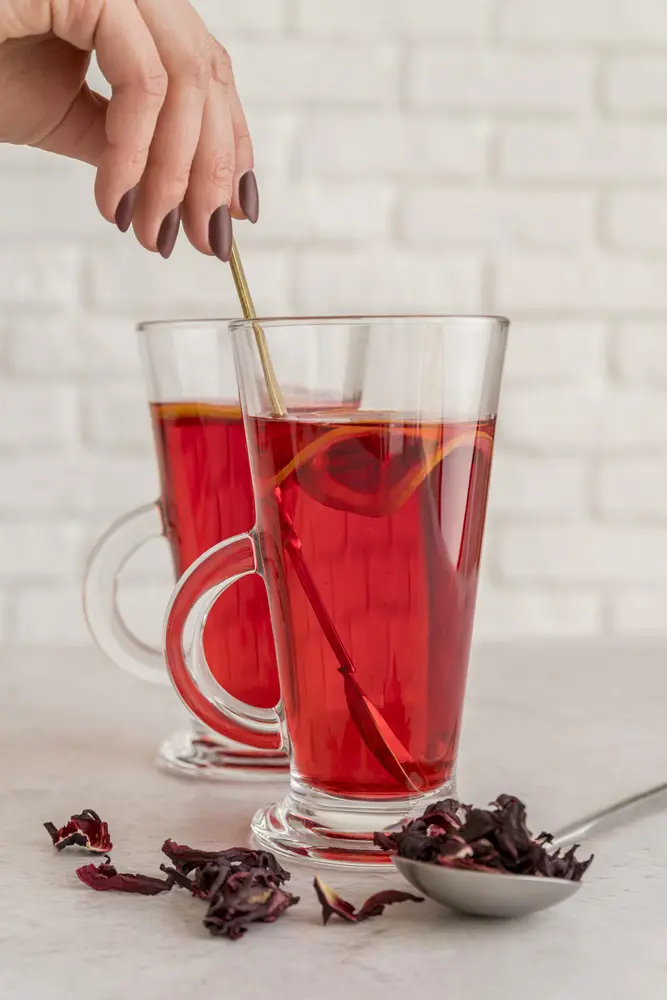
As with other teas, rooibos tea is also appreciated as a good tea for acne as it has antioxidant, antibacterial, anti-inflammatory, and immuno-modulating qualities.
Rooibos tea, through its powerful enzymes is capable of eliminating harmful free radicals that can lead to acne. This tea also deeply nourishes the skin preventing it from damage. The alpha hydroxy acids and zinc in it are just what you need for treatment of sunburns and acne-prone skin.
Rooibos tea has been reported to assist people with acne for the reason that it is anti-inflammatory. It works to relieve redness and swelling from breakouts.
How To Use
You can drink rooibos tea daily or apply cooled tea directly to the skin for convenience.
7. Stinging Nettle Tea
Stinging nettle is believed to have an anti-inflammatory as well as antimicrobial effect which makes this herb helpful in developing natural treatments to many skin illnesses inclusive of acne.
This tea makes one release wastes, toxins and pollutants through the liver and the kidneys in a process of detoxification. Moreover, it can also control the secretion of excess sebum, which leads to the minimization of clogged pores hence breaking acne formation.
In addition, it can help control the production of hormones and give hormonal balance, hence limiting the occurrence of acne on the face.
How To Use
You can take 1-2 cups of nettle tea per day or use the tea when cooled as a facial toner for acne skin.
8. Holy Basil Tea
Anti-inflammatory compounds in holy basil for instance eugenol, and rosmarinic acid reduce inflammation in the skin and heal the skin.
Holy basil is also an adaptogen herb that helps the body to adjust to stress which makes it perfect for those, who experience stress because it regulates cortisol and can minimize stress and anxiety. Moreover, it assists in the regulation of high blood sugar levels which is so crucial when it comes to the healing of acne affected skin.
Additionally, this tea's anti-microbial properties can help in the reduction of Cutibacterium acnes bacteria which is mostly related to acne.
How To Use
Drinking 1-2 cups of holy basil tea daily has a positive effect on stress and hormonal levels and has a cleansing effect on the body, which can minimize acne. Also, you might consider preparing a holy basil face pack where you apply the face pack straight to the affected zones.
9. Ginger Tea
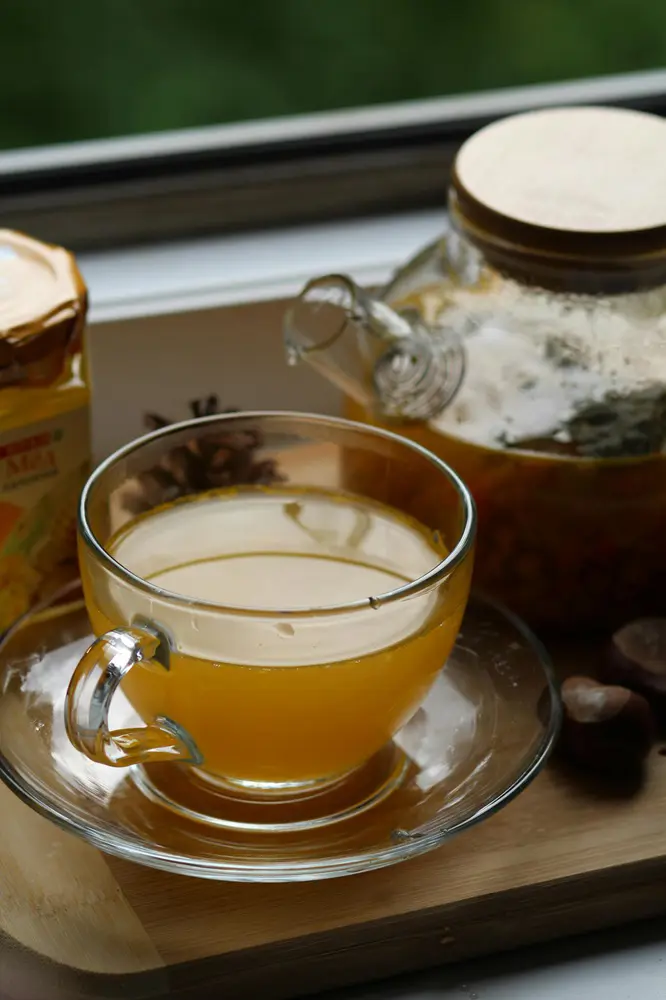
Ginger’s active component is gingerol and it has significant roles in opposing inflammation and antioxidants in motion. The features that ginger possesses make it a really useful addition to your daily diet if you want to fight skin problems such as acne and dark spots.
Ginger tea's anti-inflammatory effects aid in the reduction of skin inflammation which is necessary for acne-prone skin since inflammation contributes to the growth of acne.
It also increases the secretion of stomach acid which helps facilitate digestion. Besides this, ginger to which anti-septic attributes are inherent, effectively ‘cleanses’ the face skin and may potentially minimize bacteria that cause acne.
How To Use
You can just simply drink ginger tea daily or apply the liquid on the skin, making the anti-inflammatory work simultaneously on the affected area and its benefits evident at once.
Important Considerations
It is recommended that you do a skin patch test before applying ginger in the topical form if you have sensitive skin. There is also a possibility that the overuse of ginger tea might cause skin reactions and thus should be taken or used in moderate amounts.
10. Licorice Tea
Licorice has been traditionally used as a common remedy for redness, itching and various skin disorders because of its soothing and curative properties.
Drinking licorice root tea is more likely to lessen itchiness, redness and irritation. Additionally, this tea can also contribute to decreasing testosterone levels and maintaining healthy cortisol (stress hormone levels). Its adrenal tonic properties help support adrenal gland function.
The content of Licochalcone in licorice root helps control oil production which makes it great for sensitive, and acne-prone skin.
Important Considerations
People with sensitive skin or allergies to legume family plants might experience irritation, redness, or allergic reactions. Also, those with hypertension should be cautious, as excessive use of Licorice can potentially affect blood pressure levels.
11. Reishi Tea
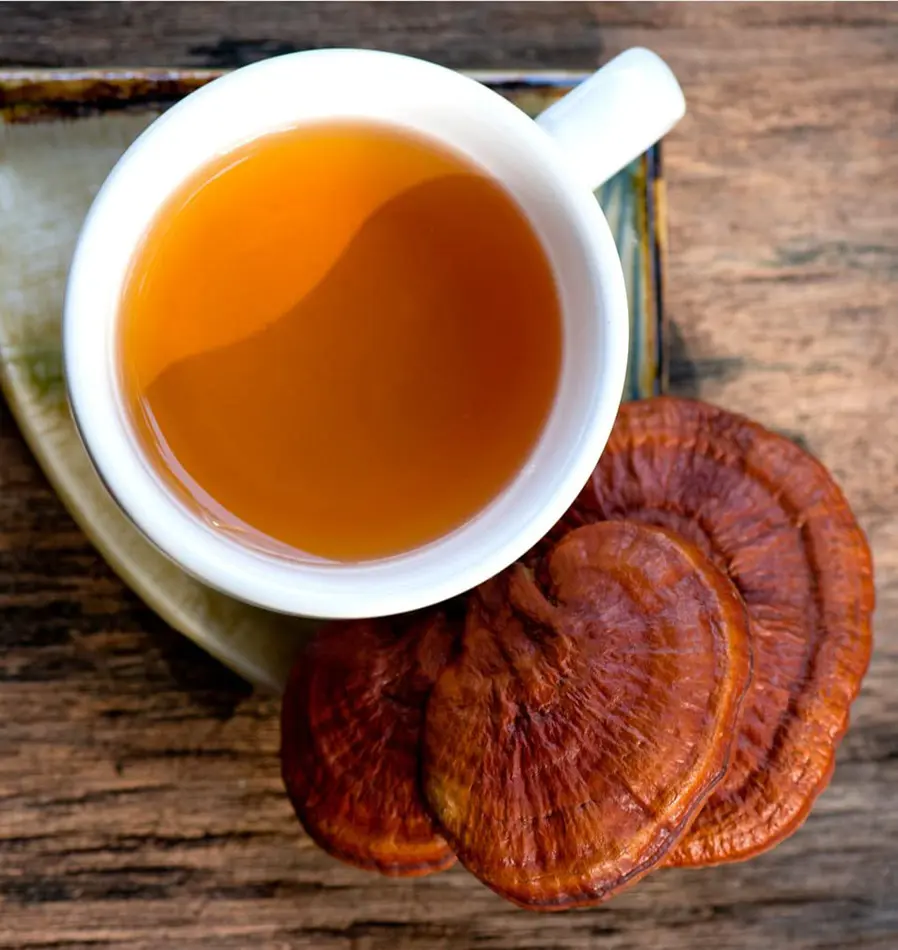
Reishi, an ancient Chinese herbal formula has recently begun making a sincere effort to make a difference in the field of skin treatments. By controlling skin's natural shedding, it fades out dark spots, dry skin and acne scar making the skin bright and repelling.
It has also been demonstrated that it regulates the immune system, thus boosting its efficiency in fighting diseases and promoting overall immune health. One more benefit of the anti-inflammatory activity is the increased capability of the skin to fight off infections, pimples and other bacteria, and various forms of stress.
In addition, reishi tea can hinder the activity of the 5-alpha reductase enzyme so that testosterone cannot be converted to DHT- a potent testosterone and acne hormone.
Important Considerations
It is found that reishi tea should be taken with caution concerning interactions with some of the drugs which are mainly anticoagulants. Nevertheless, such interactions are usually moderate, and the situation can be brought under control by a careful examination of a patient’s condition and modifications of the dosage.
There is a likelihood that people who consume it in large quantities may develop some minor stomach upsets. And, pregnant or breastfeeding mothers are strongly advised to consult their doctors before taking this tea.
12. Arrowroot Tea
Arrowroot enriched with skin-healing nutrients like antioxidants, protein and vitamins can be used for the treatment of acne scars, blemishes, rashes and pigmentation.
The natural cooling and softening traits of arrowroot and its tea support to soothe irritation also improving skin texture. It has absorbent properties that help absorb excess oil and moisture from the skin, proving to be advantageous for oily or acne-prone skin types.
Arrowroot tea also helps reduce inflammation and aid in digestion, which gradually supports in reduction of acne as inflammation is usually what leads to the redness and flare up of acne.
13. Turmeric Tea
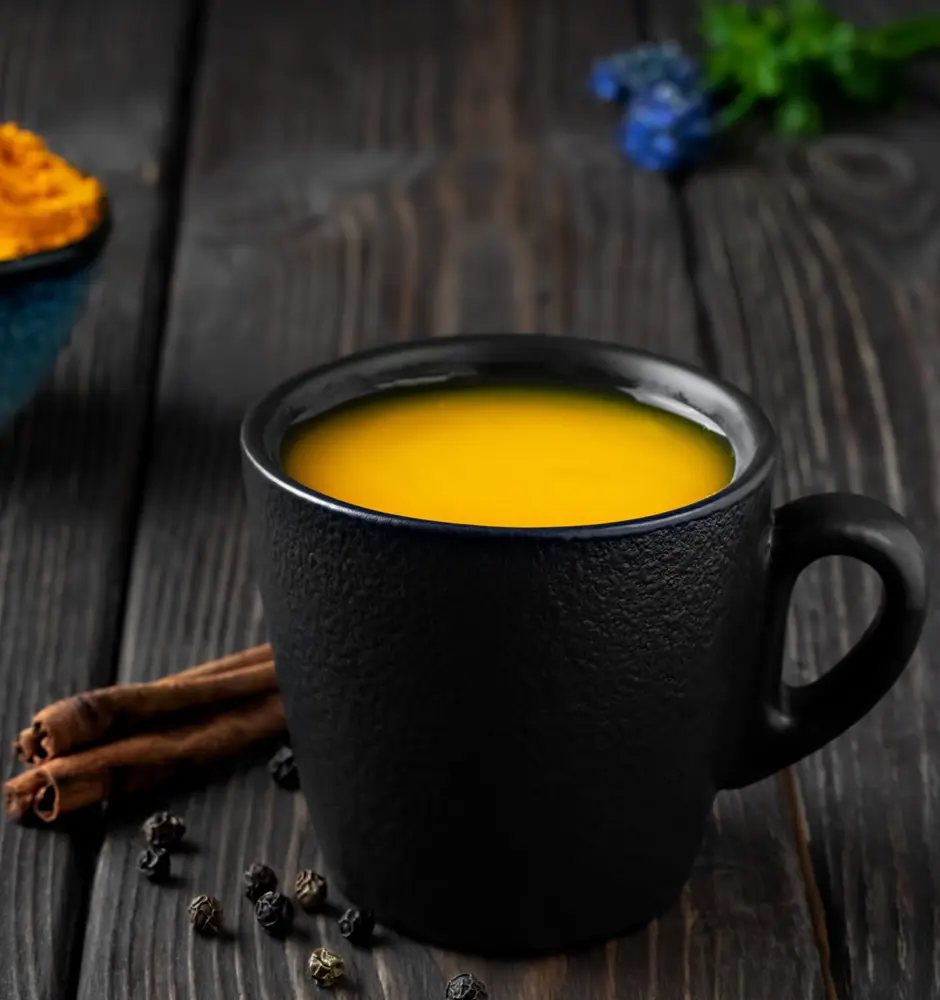
Turmeric is one of the natural remedies in skincare that has many benefits for the skin, and one of them is in treating acne. This component based on scientific findings proves that it has ample anti-inflammatory nutrients that slow down the formation of pimples, whiteheads, and blackheads brought about by inflammation.
Besides that, the antibacterial properties of turmeric tea may come in handy to fight the bacteria that cause the formation of acne lesions. This tea also prevents skin from clumping together and clogging the pores of the skin. It contains some antioxidant compounds and therefore it can remove free radicals, aid in detoxification and protect the skin against cell death and DNA damage.
14. Lavender Tea
Regular consumption of lavender tea can remain effective in treating skin ailments, particularly with its anti-inflammatory properties. Studies have revealed that lavender oil is effective at reducing inflamed rashes and promoting healing faster than standard treatments. It also helps soothe dryness, reduce wrinkles, as well as diminish redness and acne scars.
The benefits of lavender tea appear to be a promising aid for skin restoration and rejuvenation, with recent findings suggesting it may stimulate collagen production. Lavender tea can help kill bacteria, and this can prevent and heal acne breakouts. It unclogs pores and reduces inflammation when you put it on your skin.
Important Considerations
Although lavender tea is generally safer to consume, it can cause side effects in some persons, unfortunately. These include abdominal discomfort, headaches, increased appetite, allergies and sleep disturbances.
15. Calendula Tea
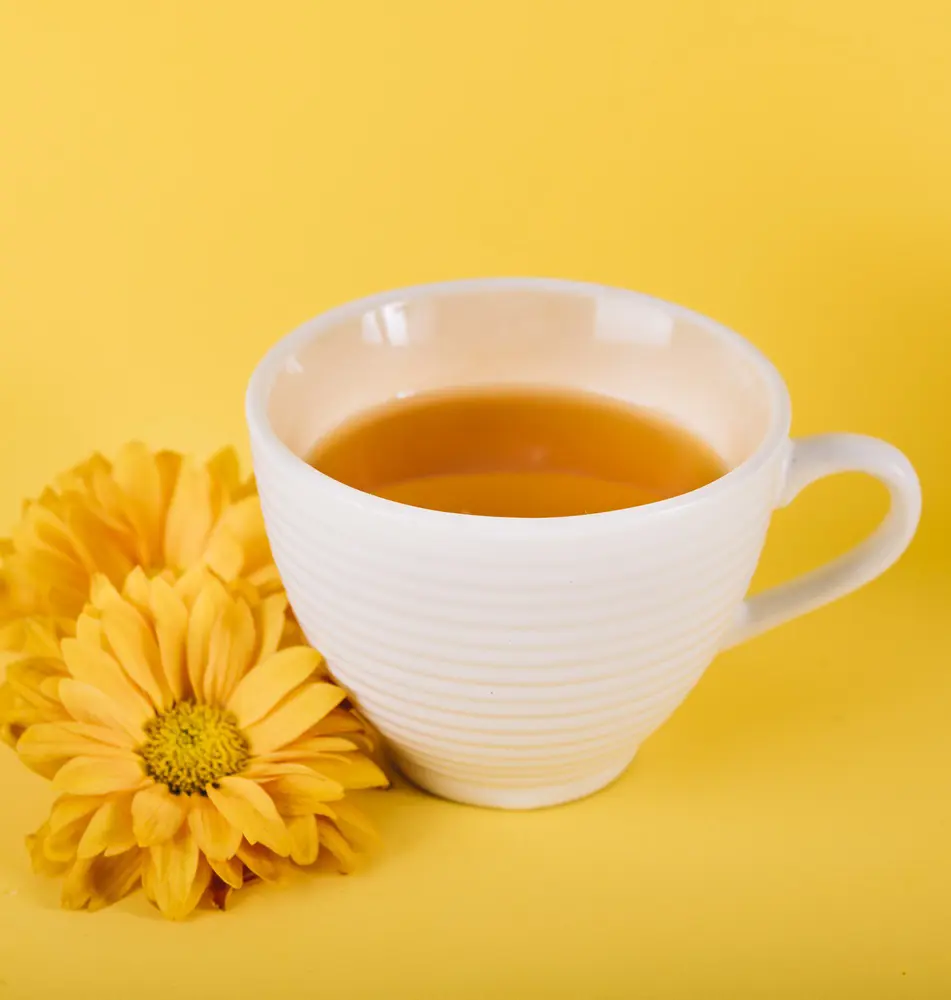
When it comes to calendula, it has also been used for skincare as recommended by herbalists for the longest time but in the past few decades, it has gained popularity as one of the best herbs to be used in skincare. It has bactericidal, fungicidal, and virucidal action that has been proven for quite some time now.
It is also helpful for all skin complaints such as acne, spots, pimples or blemishes, etc. Calendula tea relieves inflammation and infection on the skin and helps the skin not to turn hard or become rough. Moreover, it plays the role of preventing the formation of the scar.
The anti-bacterial features of calendula tea are the ones that eradicate acne-causing bacteria and hinder the formation of infection in skin injuries.
Recent posts
Lifestyle
Lifestyle
Home Remedies For Heartburn (Acid Reflux)
Stomach acids have an important function in the gastric region. However, the acids may travel back to the esophagus sometimes. This reflux of stomach acid is termed as heartburn. The common symptoms include chest pain, a burning sensation around the ...
Lifestyle
20 UTI Home Remedies That Actually Work
In 2019, the global analysis of the burden of disease showed that more than 404.6 million population had urinary tract infection (UTI) globally. Dealing with UTI comes with a lot of pain. The ultimate solution is to see your healthcare provider but t...
Lifestyle
16 Foods To Eat During Your Period And What To Avoid
Periods can be tough, but choosing the right foods may help! Fatigue, cramps, bloating, and whatever other difficulties you may have to face during your period, some foods can help ease these symptoms. Keeping this in mind, we have brought a list of ...
Lifestyle
15 Remedies For Period Cramps You Must Know About
If you feel unbearable pain during your menstrual cycle, then you are not alone; as a majority of women throughout the world experience this. Varieties of remedies are easily available to reduce menstrual cramps. This article will provide some ...
Lifestyle
14 Ways To Get Rid of A Double Chin Without Surgery
Having a double chin can degrade a person's confidence level drastically. It is usually caused by stubborn submental fat below the chin region. Excess weight, skin laxity from aging, genetics or facial structure are the main causes behind it. Surgica...
Lifestyle
15 Home Remedies To Soothe A Sore Throat
Having a sore throat can be very irritating as it can create difficulties in communication, swallowing, or even breathing. Instead of dashing into the clinic, many people seek out natural, reliable home remedies to bring quick relief. From saltwater ...


